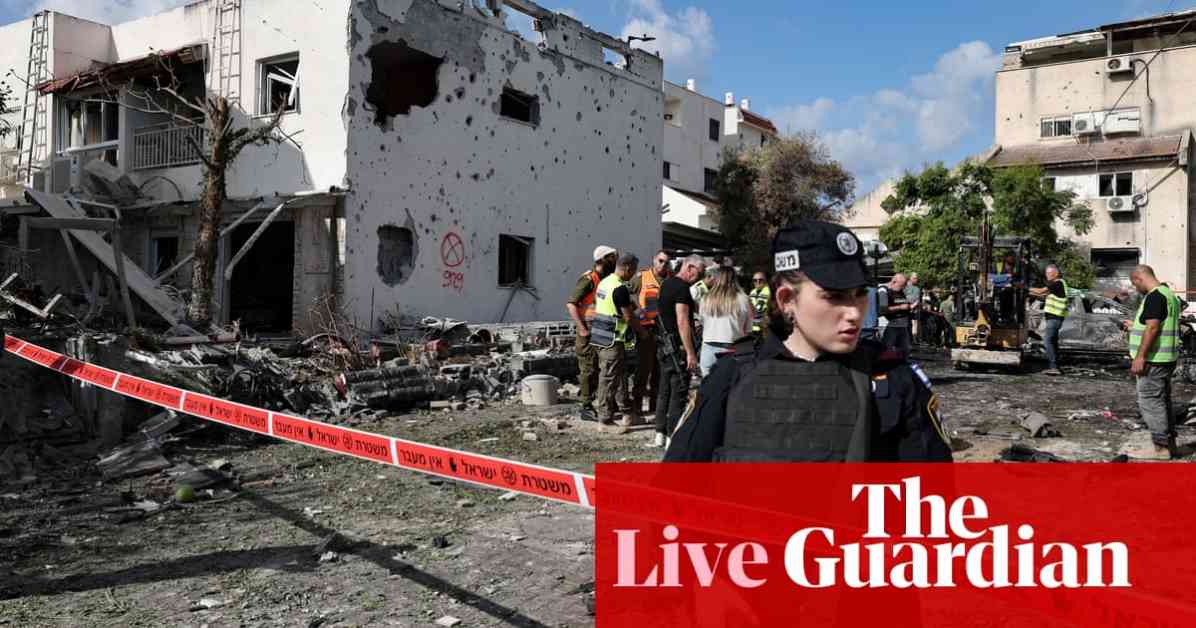Hezbollah Strikes Israeli Defense Firms in Middle East Crisis
Hezbollah has claimed responsibility for striking industrial complexes belonging to Israeli defense company Rafael near Haifa in northern Israel. This attack, which occurred early on Sunday morning, was described as an “initial response” to the pager and walkie-talkie attacks that resulted in over 3,000 wounded and 42 dead across Lebanon earlier in the week. While Israel has not publicly claimed responsibility for the attacks, it is widely believed to be behind them.
The fighting between Hezbollah and Israel escalated overnight, with Israel launching wide-ranging air strikes targeting Hezbollah missile launchers in southern Lebanon. Videos of the resulting explosions, with visible shockwaves, circulated widely on Lebanese social media. At least one person was killed and another injured in the strikes, according to the Lebanese ministry of health.
In retaliation, Hezbollah launched a barrage of rockets at northern Israel, targeting the Ramat David airbase southeast of Haifa. This marked the furthest that Hezbollah has hit since the fighting began in October.
Israeli Prime Minister Benjamin Netanyahu issued a statement from his office, stating that Israel has dealt Hezbollah “a series of blows it could not have imagined” in recent days. He emphasized that Israel would do everything necessary to restore security for its citizens and would not tolerate attacks on its cities. Netanyahu also promised the return of northern residents who were evacuated due to Hezbollah attacks in Lebanon.
Iran’s Foreign Minister, Abbas Araghchi, spoke to the media in New York ahead of the UN General Assembly, condemning Israel’s actions in Gaza and Lebanon. He blamed Western support for Israel’s military actions and stated that Iran would not let the crimes of the Zionist regime go unanswered.
In an interview with Sky News, Israeli President Isaac Herzog stated that Israel does not want war with Lebanon and described the conflict as being instigated by Iranian proxies in the region, such as Hezbollah and Hamas. He emphasized that Israel was fighting for its well-being and existence and had the right to defend itself against terrorist organizations.
The United Nations Special Coordinator for Lebanon, Jeanine Hennis-Plasschaert, warned of an “imminent catastrophe” in the Middle East, highlighting the need for a ceasefire and a diplomatic solution to the ongoing crisis.
The Israeli military reported intercepting a suspicious aerial target launched from the east, with no damage or injuries reported. Meanwhile, pro-Iranian militias in Iraq claimed responsibility for drone attacks on Israel, adding to the complexity of the regional conflict.
The escalating violence led to hospitals in northern Israel transferring operations to facilities with extra protection from rocket and missile fire. The death toll from Israeli airstrikes targeting Hezbollah military commanders in Beirut rose to 45, according to Lebanon’s health ministry. Additionally, Al Jazeera reported that Israeli forces raided its bureau in Ramallah, leading to the closure of the office for 45 days.
As the situation in the Middle East remained tense, US National Security Adviser Jake Sullivan expressed concern about the escalation between Israel and Lebanon. Turkish President Recep Tayyip Erdoğan called on Western countries to take “deterrent steps” against Israel’s actions and emphasized the need for a peaceful solution to the conflict.
Iran unveiled a new ballistic missile with a range of 1,000km, showcasing its military capabilities amid the ongoing regional tensions. The death toll in Gaza from Israel’s military offensive since October reached over 41,000, with thousands more injured.
Israeli Prime Minister Benjamin Netanyahu postponed his trip to the US due to the security situation in northern Israel. He reiterated Israel’s goals and actions in response to the ongoing crisis.
The situation in the Middle East remains volatile, with Hezbollah’s attacks on Israeli defense firms marking a dangerous escalation in the conflict. As the international community calls for a ceasefire and diplomatic solutions, the region faces continued uncertainty and instability.












